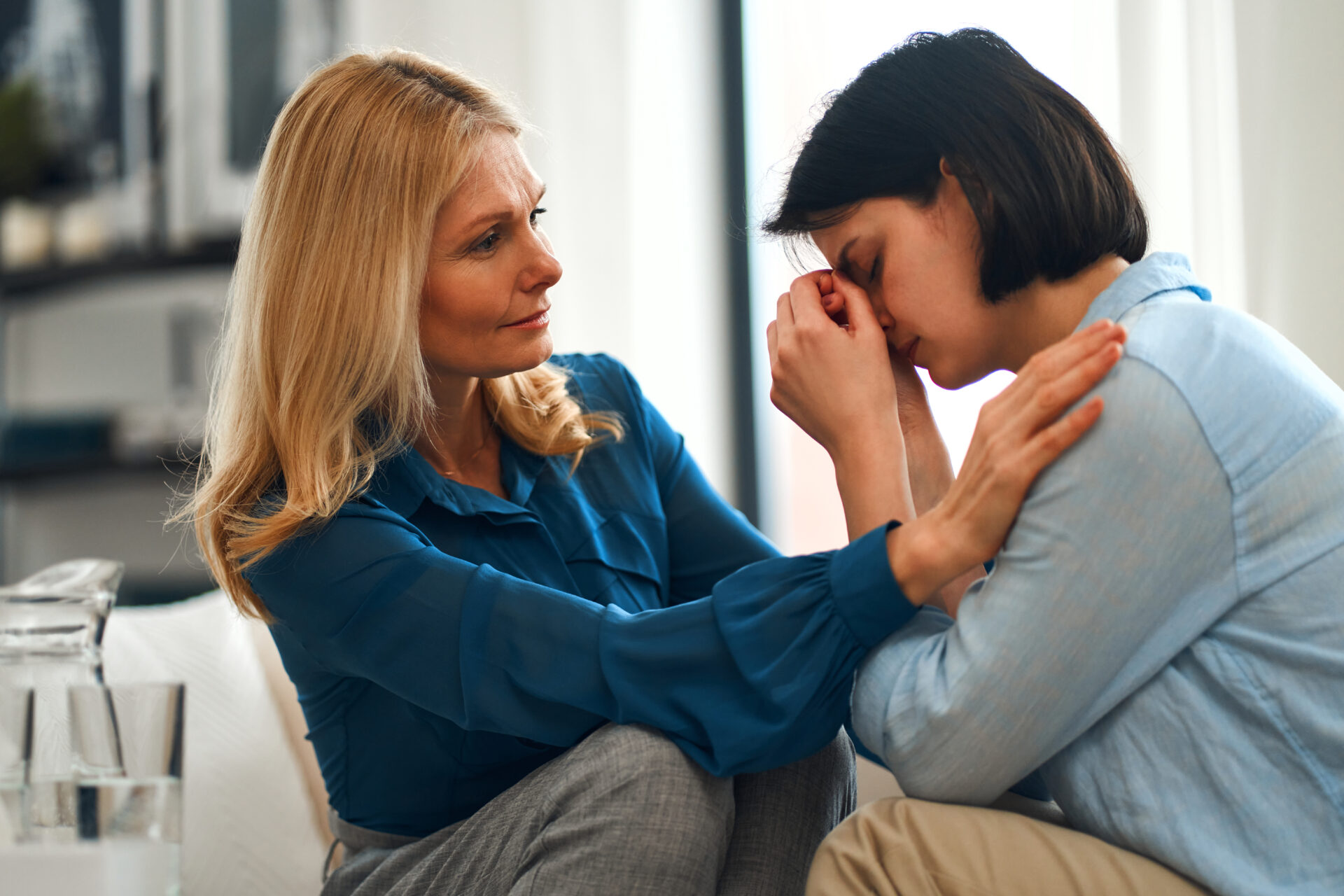Grief

Grief is a natural response to loss, encompassing a range of emotions and reactions that vary from person to person. It is a complex and deeply personal experience that can affect every aspect of a person’s life. Understanding grief, its symptoms, causes, available treatments, and when to seek care is crucial in navigating this challenging process.
Overview
Grief is the emotional suffering one feels when something or someone they love is taken away. It can result from various losses, including the death of a loved one, the end of a relationship, a job loss, or a significant life change. Grief is not limited to the emotional realm but also affects a person’s physical, social, and spiritual well-being.
Symptoms of Grief
The symptoms of grief can manifest in a variety of ways and may include:
- Emotional Symptoms: Sadness, anger, guilt, anxiety, loneliness, numbness, shock, and yearning for the deceased or lost object.
- Physical Symptoms: Fatigue, nausea, weight loss or gain, aches and pains, and insomnia.
- Cognitive Symptoms: Confusion, difficulty concentrating, forgetfulness, and preoccupation with the deceased or lost object.
- Behavioral Symptoms: Crying, social withdrawal, avoiding reminders of the loss, searching for the deceased or lost object, and changes in appetite.
Causes
Grief is a natural response to loss. This can include the death of a loved one, the end of a relationship, a job loss, or other significant life changes.
The intensity and duration of grief can vary depending on several factors, including:
- Nature of the Loss: The significance of the loss and the relationship to the deceased or lost object can influence the intensity of grief.
- Personality: Individual differences in coping styles, resilience, and emotional regulation can impact how a person experiences grief.
- Past Experiences: Previous experiences with loss can influence how a person copes with current grief.
- Support System: The availability of social support can affect how a person processes and copes with grief.
Available Treatments
While grief is a natural process, some individuals may benefit from professional support to cope with their loss. Available treatments may include:
- Counseling: Individual or group counseling can provide a safe space to express emotions, explore coping strategies, and receive support from others experiencing similar losses.
- Therapy: Cognitive behavioral therapy (CBT) or other forms of psychotherapy can help individuals process their grief, challenge negative thoughts, and develop healthy coping skills.
- Medication: In some cases, medication may be prescribed to manage symptoms such as depression or anxiety that can accompany grief.
- Support Groups: Joining a support group for individuals who have experienced similar losses can provide a sense of community and validation.
When to Seek Care
While grief is a normal response to loss, it is important to seek professional help if:
- Symptoms are severe or prolonged: If grief symptoms are interfering with daily functioning or persisting for an extended period, it may be beneficial to seek professional support.
- Suicidal Thoughts: If you are experiencing thoughts of self-harm or suicide, seek immediate help from a mental health professional or emergency services.
- Difficulty Coping: If you are struggling to cope with your grief or feel overwhelmed by your emotions, consider seeking support from a counselor or therapist.

How to Seek Care
If you believe you would benefit from professional support for your grief, consider taking the following steps:
- Talk to Your Doctor: Your primary care physician can provide a referral to a mental health professional who specializes in grief counseling.
- Reach Out to a Mental Health Professional: Contact a licensed therapist or counselor who has experience working with individuals experiencing grief.
- Join a Support Group: Consider joining a support group for individuals who have experienced similar losses. Many organizations offer both in-person and online support groups.
- Consider Medication: If your grief is accompanied by symptoms of depression or anxiety, talk to your doctor about whether medication may be helpful for you.
Risk Factors
While grief is a universal experience, certain factors may increase the risk of experiencing complicated or prolonged grief, including:
- Lack of Social Support: Limited social support can make it more challenging to cope with grief.
- Unresolved Grief: Past experiences with loss that have not been fully processed can impact how a person copes with current grief.
- Pre-existing Mental Health Conditions: Individuals with pre-existing mental health conditions, such as depression or anxiety, may be more vulnerable to experiencing complicated grief.
- Sudden or Traumatic Loss: Losses that are sudden, unexpected, or traumatic can increase the risk of experiencing complicated grief.
Complications
Complicated grief is a form of grief that is particularly intense, prolonged, or debilitating. It can interfere with daily functioning and may require professional intervention. Complications of complicated grief may include:
- Increased Risk of Mental Health Disorders: Complicated grief is associated with an increased risk of developing depression, anxiety disorders, and other mental health conditions.
- Impaired Physical Health: Prolonged grief can have negative effects on physical health, including increased risk of cardiovascular problems, weakened immune system, and other health issues.
- Strained Relationships: Unresolved grief can strain relationships with family and friends, leading to feelings of isolation and loneliness.
- Negative Coping Strategies: Individuals experiencing complicated grief may turn to unhealthy coping mechanisms, such as substance abuse, to numb their pain.
Prevention
While grief is a natural and unavoidable part of life, there are steps individuals can take to cope with grief and reduce the risk of experiencing complicated grief:
- Build a Strong Support Network: Cultivate relationships with family, friends, and other supportive individuals who can provide emotional support during times of loss.
- Practice Self-Care: Engage in activities that promote physical and emotional well-being, such as exercise, healthy eating, and adequate sleep.
- Seek Professional Help: If you are struggling to cope with grief, consider seeking support from a counselor, therapist, or support group.
- Process Past Grief: If you have unresolved grief from past losses, consider seeking professional help to process these emotions and prevent them from impacting your current grief.
Frequently Asked Questions: Grief
How long does grief typically last?
Grief is a highly individual process, and there is no set timeline for how long it lasts. It can vary greatly depending on the individual and the nature of the loss. While some people may start to feel better in a few weeks or months, for others, grief may last much longer.
What are the stages of grief?
The stages of grief, as proposed by Elisabeth Kübler-Ross, include denial, anger, bargaining, depression, and acceptance. However, it’s important to note that not everyone experiences these stages, and they are not linear or fixed.
What is complicated grief?
Complicated grief is a form of grief that is particularly intense, prolonged, or debilitating. It can interfere with daily functioning and may require professional intervention.
How can I support a friend or loved one who is grieving?
Offer your presence and listen without judgment, avoid trying to fix their feelings, offer practical help, and be patient and understanding of their process.
When should I seek professional help for grief?
You should consider seeking professional help if your grief is severe, prolonged, or interfering with your daily functioning, or if you are experiencing thoughts of self-harm or suicide.
What are some healthy coping strategies for grief?
Healthy coping strategies for grief include talking about your feelings, seeking support from others, engaging in self-care activities, maintaining a routine, and allowing yourself to grieve in your own way.
How does grief affect physical health?
Grief can affect physical health in various ways, including fatigue, nausea, changes in appetite, aches and pains, and weakened immune function.
Can grief lead to depression or anxiety?
Yes, grief can sometimes lead to depression or anxiety, especially if it is prolonged or intense. It’s important to seek help if you are experiencing symptoms of depression or anxiety.
How can I help my child cope with grief?
Be honest and age-appropriate in your explanations, encourage them to express their feelings, maintain routines, and offer plenty of love and reassurance.
Is it normal to feel guilty or angry during grief?
Yes, it is normal to experience a range of emotions during grief, including guilt and anger. These feelings are a natural part of the grieving process.
Are there any support groups or resources available for people experiencing grief?
Yes, there are many support groups, online communities, and resources available for people experiencing grief. These can provide valuable support and guidance during the grieving process.
What should I avoid saying or doing when supporting someone who is grieving?
Avoid minimizing their feelings, offering cliché advice, or trying to rush their grieving process. Instead, listen with empathy and offer your support.
How does grief affect relationships?
Grief can strain relationships, as individuals may have different ways of coping with loss. It’s important to communicate openly and support each other through the grieving process.
Is it possible to experience grief for a non-death loss, such as a job loss or divorce?
Yes, it is possible to experience grief for any significant loss, including a job loss, divorce, or other life changes. The feelings and reactions may be similar to those experienced after a death.
How can I take care of myself while grieving?
Taking care of yourself while grieving is important. This can include getting enough sleep, eating well, exercising, and seeking support from others, such as a mental health professional.
If you’re struggling with grief and would like some help, contact us today to schedule a consultation.
